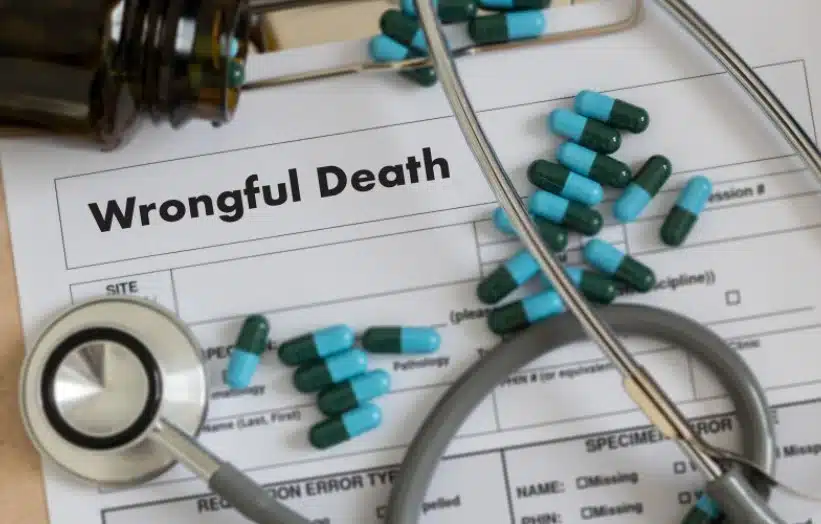
In the case of wrongful death claims and actions, there are some legal issues to take care of before an action can be initiated after losing a loved one. The person who brings a wrongful death claim stands as the representative of the person who died. But the person bringing the lawsuit needs to have “standing” to bring that action.
The idea of standing is a legal term that requires that a person bringing a wrongful death action has the authority to do so or has the right to bring a claim for someone for the death of that loved one. For example, in a wrongful death action, a spouse would have more standing than a neighbor to bring an action for damages for the loss of a fatally injured person in a wrongful death case.
What Are the Differences Between Wrongful Death or Personal Injury Claims?
A wrongful death claim is when a surviving family member makes a claim for the loss of a loved one who died as a result of the negligent actions of another. A personal injury claim is similar, but the person affected by the negligence of someone else did not die as a result of those negligent actions.
What Types of Losses Can Be Recovered for Wrongful Death?
Many different types of expenses are recoverable by the decedent’s surviving family members in a wrongful death claim. These expenses include:
- Medical expenses and medical bills
- Funeral expenses to bury the loved one
- Lost wages of the loved one
- Loss of benefits such as family insurance coverage, pension plans, etc.
- Pain and suffering of the loved ones for the loss
- Loss of companionship or loss of consortium, love, and affection of the loved one who died
I Am Divorced Now from the Loved One Who Died, Am I Still Considered a “Surviving Spouse”?
Generally speaking, the surviving spouse of a decedent is the person to who the decedent is married to at the time of the death. If you are divorced from the decedent when that person dies, you are the divorced spouse of the decedent, not the surviving spouse of that person. The action of wrongful death starts at the moment that the person dies, not when the injuries are inflicted on that person. Not to split hairs, but if an individual is shot by someone, and is married, then the wife divorces the person while he is in the hospital for those injuries, there will be a problem if the divorce is final before the hospitalized person dies. In other words, if you are divorced from the person when the clock starts in a wrongful death action at the person’s death, then you are not considered a surviving spouse in most cases. Of course, there are people who are separated and other issues, whereby this situation can therefore become a bit more complicated.
Learn More About The Wrongful Death Claims
For more details, please visit CEO Lawyer Personal Injury Law Firm or contact our injury and accident attorneys via form. Or give our skilled Georgia personal injury lawyers a call today at (470) 323-8779 right now.



